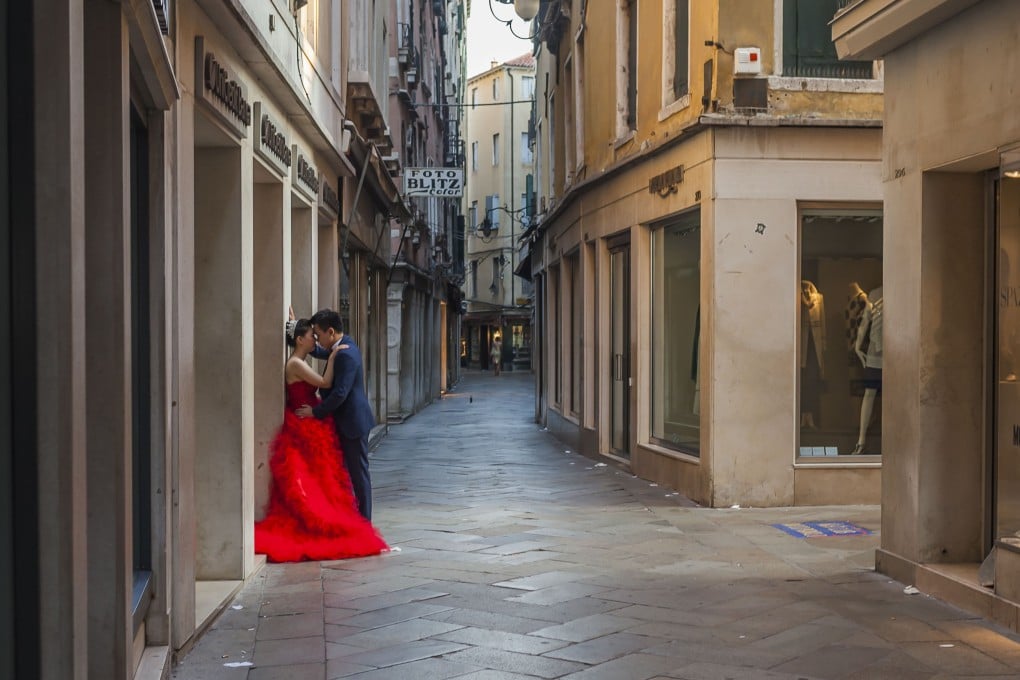Advertisement
Destination weddings: why China’s millennials love Italy for getting married – the romance and glamour of cities like Rome, Venice and Florence, and the scenic countryside
- Destination weddings in Italy for Chinese people are on the up, with the average celebration costing over US$90,000
- Italian wedding planners help with the entire process, from hotel bookings to handling the flowers, decor and banquet menu
Reading Time:5 minutes
Why you can trust SCMP

A romantic photo of an elaborately gowned bride posing in front of Rome’s Coliseum. A multi-course traditional wedding banquet in a medieval manor. An intimate wedding journey on a Venetian gondola.
These are all scenes from carefully organised Chinese wedding galas in Italy, which has become an increasingly popular destination for Chinese nuptial celebrations. It’s a trend that could become a big earner for the Mediterranean nation, with the cost of an average Chinese wedding totalling about €85,000 (US$94,000) making the celebrations the country’s priciest foreign weddings.
“Italy is turning into a hotspot destination for Chinese weddings, with couples lured by the appeal of the historical Renaissance piazzas of popular cities and romantic scenes,” says Massimo Feruzzi, chief executive of JFC, a leading Italian tourism consultancy that has been tracking the rising trend of Chinese destination weddings. “It has become a huge business for Italian wedding planners and companies involved in welcoming Chinese couples and targeting their specific needs and wishes.”
Advertisement
Feruzzi adds that although business is being knocked sideways by the coronavirus outbreak that originated in China, once the emergency is contained the situation is expected to return to normal.

Advertisement
Getting married is usually cause for huge celebration in China that includes extended family members, colleagues and friends. When the wedding is held in a foreign country, professional help is essential.
Advertisement
Select Voice
Select Speed
1.00x